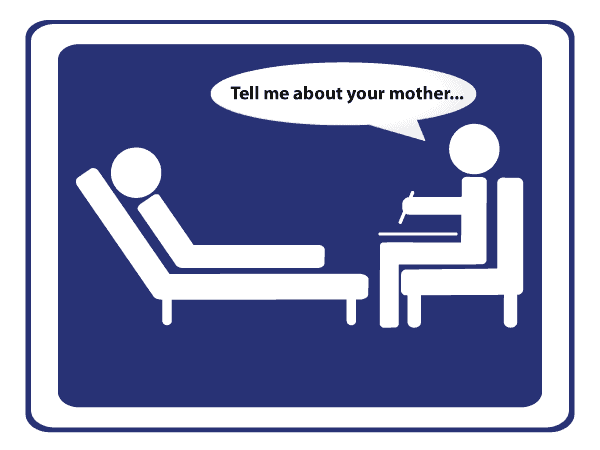|
This post is an excerpt from the new The Jesuit Post book, The book features 20 new essays from writers for The Jesuit Post, as well as reprinting a few of the best essays from our first two years online. For more information, click here. |
 |
I take a sick pleasure in conversations that involve the question “You know what the Jesuits should be doing . . . ?” In my imagination, I respond by plopping my elbows on the table and resting my chin on my palm. I bat my eyes, gazing up at the all-knowing sage in front of me. “No, I have no absolutely no idea what we should be doing,” I begin. “It’s funny, but we never thought to ask that question! Shucks, we should’ve thought of that! Luckily you have, so please, I’m dying to learn what we Jesuits should be doing.” Alas, I’ve been trained to be a caring, loving minister, and so Christian charity (pesky little thing) means this fantasy remains only a daydream. Instead, I smile and listen attentively, even if what I want to do is scream, “Come at me, bro!”
Part of my work for The Jesuit Post is administering our social media presence, and let me tell you, in this line of work nearly all of my conversations involve some form of “You know what the Jesuits should be doing?” I like to compare this work to fighting the mythical hydra. If you accomplish something on one social network—that is to say, if you hack off one head of the hydra—two more will sprout up in its place. Behold the nature of virality: if you do your job properly, you are likely to get overwhelmed pretty quickly.

The Mythical Hydra
Voropaev Vasiliy/Shutterstock
In my time watching our comments and keeping track of who tweets, pins, and posts about TJP, I’ve seen a whole range of responses to our work. Praise, confusion, and excitement are the easiest ones to deal with. Deep engagement with ideas and sincere conversation about pressing issues both happen and are gratifying. And the honest and open discussion that results is really helpful for our contributors, editors, and readers. It’s really easy to love our followers and fans when this happens; I particularly love it when people ask good questions or challenge us to revisit an issue from a new angle.
But by far my personal favorite, what makes me truly love my job, is the absolute lunacy. You know the kind I mean: unsolicited rants, conspiracy theories, and insatiable comment trolls—the people with way too much free time who stalk the Internet looking for fights—the whole nine yards. Yes, I’ve discovered that I love the crazies.
Who are the crazies, you ask? Well, at the very least, we can say that they are a species unto themselves. They are the Internet version of the type of folks who end up on Jerry Springer or Jersey Shore, or whatever sad train wreck of humanity reality television will parade in front of us this season. Those people, those other people—right?
Wrong.
Sorry, friend, “the crazies” probably includes both of us. I know, I know: Surely I am mistaken. Everything you and I think is sane and rational. Wholly reasonable, really. The fruit of calm and careful deliberation. We could never be one of the crazies.
Well, I am here to tell you that we are all a little crazy. And that it’s OK to be a little crazy.
When we started The Jesuit Post, we wanted to provide a place that discussed religion and culture without all the shouting matches we had witnessed elsewhere. We kept wondering what people on the margins must think about religion when most of the discussions they heard about faith were the wars waged in comment sections on religious sites. I know I hardly ever visited those because whenever I did I got the impression that religion was nothing but a war over dogma and doctrine. A whole lot of I’m right and you’re wrong; I’m a real Christian and you’re a heretic. We wanted to cut out the crazy, wash it out, and clean up the image of religion. We kept saying to ourselves, “There has to be a more civil way to talk on the Internet about a serious spiritual life.”
We were wrong. But thank God we were wrong!
As I’ve learned, if you want to have completely reasonable and civil conversation about religion, just give up now. I mean it. Pack up, take your toys, and go home. If we expect people to be completely reasonable about religion, we seem to have missed, oh I don’t know, the last three thousand years of human history. And, come to think of it, this loose grip on reasonableness shouldn’t really surprise us. Because when you boil it all down, we’re asking people to consider a God who loves unconditionally, who sacrificed himself for a group of confused sinners, a God who continues to reach out to us every day. By commonly accepted standards (i.e., ours), God is the crazy one.

“Here Comes Everybody”
Sergey Nivens/Shutterstock
There are very few gatekeepers on the Internet. If you set up a comments section, you’ve just invited everyone into the discussion. Writer Clay Shirky aptly titled his book about Internet-based communities Here Comes Everybody (which, fittingly enough, has been offered as a good definition of “Catholic”). 1 As Shirky notes, the cost of creating groups around niche ideas—those outside the mainstream—is significantly lower on the Internet. Thanks to the wonders of technology, each of us can easily connect with people who enjoy the same brand of crazy we ourselves possess. And bolstered by the awareness that there are others who think like us, we become only too happy to share our unfiltered thoughts with the entire universe. Here comes everybody!
So why am I so excited about having everybody around? Because for all the insanity and the moments of great confusion, when everybody (crazies included) jumps into the fray, the ensuing insanity can be a forceful reminder that we are—all of us—mucking around in this world together whether we like it or not. And that we need to make sure we don’t take ourselves too seriously as we wade through all that muck.
The Internet gives everyone a soap box and an audience. It’s worldwide open mic night. And, just like at a comic we think is bad, if people don’t like what we say they have a tendency to boo. Label them whatever you want—crazy, angry, deranged—but they are there, and they aren’t going to disappear. Worse still, those labels become an easy way of writing people off, which blinds us from what they have to share with us. If there is anything that teaches me that the world is larger than I am and that I can never hope to fully understand it (let alone control it), it is dealing with some of the crazy comments and interpretations of Jesuits and our work that pop up on the Internet. Paradoxically, this little dose of crazy has gone a long way in keeping me sane.
When I wanted to join the Jesuits, I had to complete a formal application process. This included a full psychological assessment, complete with a battery of tests. I had never seen a shrink before, and I was more than a little nervous at the prospect of having some stranger ask me probing questions about my deepest, darkest secrets. (I’d prefer to have my adolescent years left alone, thank you very much; it was traumatic enough the first time.) Before the big day, I kept picturing myself on a leather couch across from a middle-aged man who smelled of cigars, cognac, and cologne. In perfect Oxford diction, jotting notes on a legal pad, he would say to me, “Tell me about your mother. . . .”
 In the days leading up to the appointment, I talked with a few Jesuit friends about the coming evaluation. They reassured me by saying, “Look, they are just checking to make sure you’re the right amount of crazy. If you’re totally sane, you can’t survive Jesuit life, but if you’re a complete nut job, well, that’s not good either.” I’ll admit that I have a very active imagination, so while I’d swear I caught a faint waft of cigars, cognac, and cologne, the psychologist I met with had a nasal Chicago accent instead of sounding like a member of the Royal Family. Luckily I had just the right amount of crazy, because he passed me. A year later I entered the Jesuit novitiate.
In the days leading up to the appointment, I talked with a few Jesuit friends about the coming evaluation. They reassured me by saying, “Look, they are just checking to make sure you’re the right amount of crazy. If you’re totally sane, you can’t survive Jesuit life, but if you’re a complete nut job, well, that’s not good either.” I’ll admit that I have a very active imagination, so while I’d swear I caught a faint waft of cigars, cognac, and cologne, the psychologist I met with had a nasal Chicago accent instead of sounding like a member of the Royal Family. Luckily I had just the right amount of crazy, because he passed me. A year later I entered the Jesuit novitiate.
Throughout my Jesuit formation I’ve been trained to challenge my assumptions. I’ve learned that God is always more than I could ever have imagined. Jesuits are constantly seeking to become more free, more open to the continuing call of the Holy Spirit, reaching out to new frontiers, seeking to find God in all things. This can be a slow process, and it requires honest transparency and the courage to face new ideas and new places. The challenges to this process are many, and long standing. We’ve always faced the temptation to circle the wagons, to close our world into safe, established patterns. Social media is no different. It runs a serious risk of becoming an echo chamber. We too easily follow people who already like us, who think like we do, and who generally have the same interests as we do. As a result, you can end up preaching to the choir, and quickly.

“Let’s let out a little pressure…”
Vitaliy Hrabar/Shutterstock
I like to think of the crazies as the Internet’s built-in safety valve. Like mutations in evolution, when we take them seriously, these are the people who demand adaptability and change, who teach us new ways of responding to new situations. If the mutation is too much, too insane, too deadly, it won’t survive. But maybe, if it’s just the right amount of crazy, it can be a game changer—the type of shift that changes the established rules and opens up new possibilities. These are the crazy mutations that show up just when you least expect it, and then our reasonable, sound, and predictable views are suddenly shattered.
The Society of Jesus has always been able to attract a large number of crazy detractors, and that’s probably because we are a little crazy ourselves. We are trained to dream big. Really, really big. One of our mottos is Ite inflammate omnia, reproduced on greeting cards and kitchen magnets everywhere as “Go and set the world on fire.” Legend has it that our founder, St. Ignatius Loyola, sent his close friend (and cofounder of the Jesuits), St. Francis Xavier, to convert the East using those words. And by “the East” he meant, oh, all of Asia and the islands surrounding it. Make no small plans indeed!
Whenever I think I’ve got it all figured out, I remind myself that I joined a religious order that is almost five hundred years old—we’ve had plenty of time to make a few serious gaffes. I professed vows of poverty, chastity, and obedience (who’s crazy now?), and I am part of a church that in addition to supporting many of the greatest cultural works in Western history also burned witches at the stake and put Galileo on trial for teaching what is today known as basic astronomy. We are plenty crazy. Reasonable is more of a moving target than we like to admit.
I actually keep a folder on my computer with my favorite Jesuit conspiracy videos. On bad days, I open up that folder and have a good laugh. Did you know that we are supposedly responsible for the sinking of the Titanic? (That’s right, James Cameron, you owe us. Where would your record blockbuster have been without the Jesuits?) Even better, we apparently run a secret military base in North Korea! When I told the superior general of the Society of Jesus—the head Jesuit, the big cheese, the “Black Pope”—about this secret military base with hundreds of thousands of Jesuits on it, he stopped and, with a wry smile, said, “Where are they? I need them now. Go get them.” (So, if this book somehow slips past the North Korean censors and you guys are reading this, please report to Rome immediately. We have work to do.)

There’s nothing quite like a good conspiracy
Suzanne Tucker/Shutterstock
It’s often tempting to think that the crazies are funny because we aren’t like them; we are the sane ones, the ones who understand the world. We are different than the crazies. But, my dear, sweet deluded friend, that is a point of great danger. Because, as I have found, the reason I love the crazies is that they remind me of how very fragile and human we all are, how crazy and insane it is to even believe that we are in charge of this little spinning orb that is hurtling through the cosmos.
Back in the late 1990s, Apple Computer ran a very clever ad campaign called “Think Different.” As they played images of Amelia Earhart, Thomas Edison, Albert Einstein, Gandhi, Jim Henson, and Martin Luther King, Jr., the voice over on the ad said, “Here’s to the crazy ones. The misfits. The rebels. The troublemakers. The round pegs in the square holes. The ones who see things differently. . . .” It goes on to say, “You can quote them, disagree with them, glorify or vilify them. About the only thing you can’t do is ignore them.” The premise is straightforward: the only people who change the world are the ones who are crazy enough to think that they actually can. While it’s obviously a well-crafted piece of marketing, it is also profoundly true.
So here’s to you, crazies. Here’s to you for reminding me that I’m just as insane. And that always playing by the reasonable and rational rules is just another flavor of crazy. So, here’s to us, really. Here’s to us who still believe this world can be changed, that this world is not what it seems, and that there is so much that we are missing. Here’s to those of us who take a good hard look at the mess we’re all part of and respond, “Come at me, Bro!”
- The origin of applying this statement to the Catholic Church is (like so much on the Internet) hotly debated. The phrase is James Joyce’s, although he almost certainly didn’t mean it the way Shirky does. Regardless, it’s certainly true that describing Catholicism as an unruly horde is an idea with deep roots. ↩


